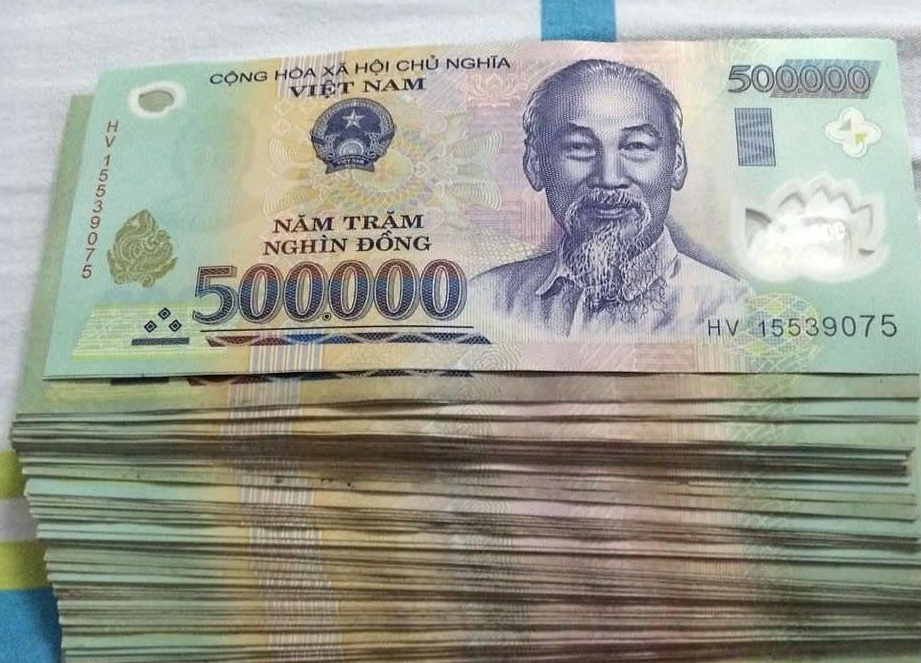U.S. Inflation Decline Set to Slow
December 11, 2024
Advertisements
In recent months, various currencies across Asia have faced significant depreciation, with not only the yen and won capturing attention but also the Vietnamese dongJust a few months ago, the exchange rate hovered slightly above 23,000 dong for one US dollarHowever, it has now escalated to approximately 25,500 dong for the same amount—a stark increase that raises concerns for the Vietnamese economy as well as its citizens.
In light of this adverse economic development, officials from the State Bank of Vietnam have urged the public to exercise caution in trading foreign currencies with lending institutionsThey stressed that indiscriminate buying and selling of foreign currencies could contravene legal restrictionsThe authorities have also made it a priority to relay critical information regarding foreign exchange regulations and currency trading practices to the population.
According to Nguyen Duc Lenh, the Vice President of the Ho Chi Minh City branch of the State Bank of Vietnam, foreign exchange agencies are now permitted only to purchase foreign currencies for individuals using the Vietnamese dong
Furthermore, these agencies are prohibited from selling cash in foreign currencies to individuals in exchange for dong, though there are exceptions for individuals holding foreign passports who may purchase foreign cash within regulatory limits.
Individuals traveling abroad who carry foreign cash or an excessive amount of dong are required to declare these holdings to customs authorities at international bordersWithin the constraints of existing foreign exchange capabilities, lending institutions are tasked with fulfilling foreign currency requirements for transactions based on the actual, reasonable needs of each case.
The State Bank of Vietnam has made its intentions clear: they aim to cool down the exchange rates by implementing various monetary strategies.
In an effort to stabilize the currency, the State Bank reported that it sold USD 110 million on April 22, followed by additional sales of several hundred million dollars on subsequent days
With approximately USD 220 million sold by April 2 alone, it asserted that increasing the supply of dollars is a crucial step to maintain the exchange rate during these turbulent economic times.
However, the results of these interventions have been less than satisfactory; despite a slight uptick in the dong’s value, it remains above the State Bank of Vietnam's set threshold, which dictates that the exchange rate cannot exceed 24,487 dong per dollarThe central bank is closely monitoring developments in the US economy as these factors have a direct impact on the dollar-dong exchange rates.
In addition to selling dollars and repurchasing dong, the central bank has begun utilizing its gold reserves, initiating the auction of gold bars on April 22 in a bid to increase market liquidityAmid a 5% depreciation of the dong in a short span, authorities are taking a proactive “active intervention approach” to stabilize the situation.
Vice Governor Tao Minh Tu indicated that the bank plans to actively manage its monetary policies, utilizing flexible monetary and fiscal strategies to control inflation while supporting the recovery of economic growth
The aim is to promptly adapt to shifts in both domestic and international markets, ensuring stability in the foreign exchange realm.
He noted that the Federal Reserve’s decision to postpone interest rate cuts, coupled with robust employment data prompting analysts to adjust forecasts, as well as heightened geopolitical tensions, have all contributed to the unexpected depreciation of several currencies, including the dong and yenThis reality necessitates swift policy adjustments to cushion the currency against further devaluation.
To further counter the dong's steep depreciation, the State Bank is poised to continue selling gold and dollars while extending debt repayment deadlines and interest payments to alleviate burdens on enterprisesOriginally set to conclude on June 31 of this year, this policy is now projected to extend through the end of 2024, as ongoing economic conditions require sustained support.
At the same time, the bank is actively developing consumer credit strategies, aiming to facilitate service provision to commercial banks and financial companies while pushing towards demand-driven objectives that favor economic growth

Furthermore, the State Bank intends to collaborate with the Ministry of Public Security to explore the potential for unsecured loans backed by national data systems.
Reports suggest that when the US dollar strengthens, it poses significant risks for Asian currenciesSince the beginning of this year, numerous currencies in the region have seen considerable declines, primarily due to interest rates being lower than those in other emerging marketsIn Indonesia, the central bank has been deploying foreign exchange reserves to purchase its local currency, reflecting a strategy meant to cushion impacts from dollar fluctuations.
Similarly, the central bank in Malaysia has encouraged state-owned enterprises to remit overseas profits back home and convert them into ringgitChinese state-owned banks are actively selling dollars in the market to bolster the yuan, while the Philippines central bank has postponed planned interest rate cuts for the year
Leave A Comment